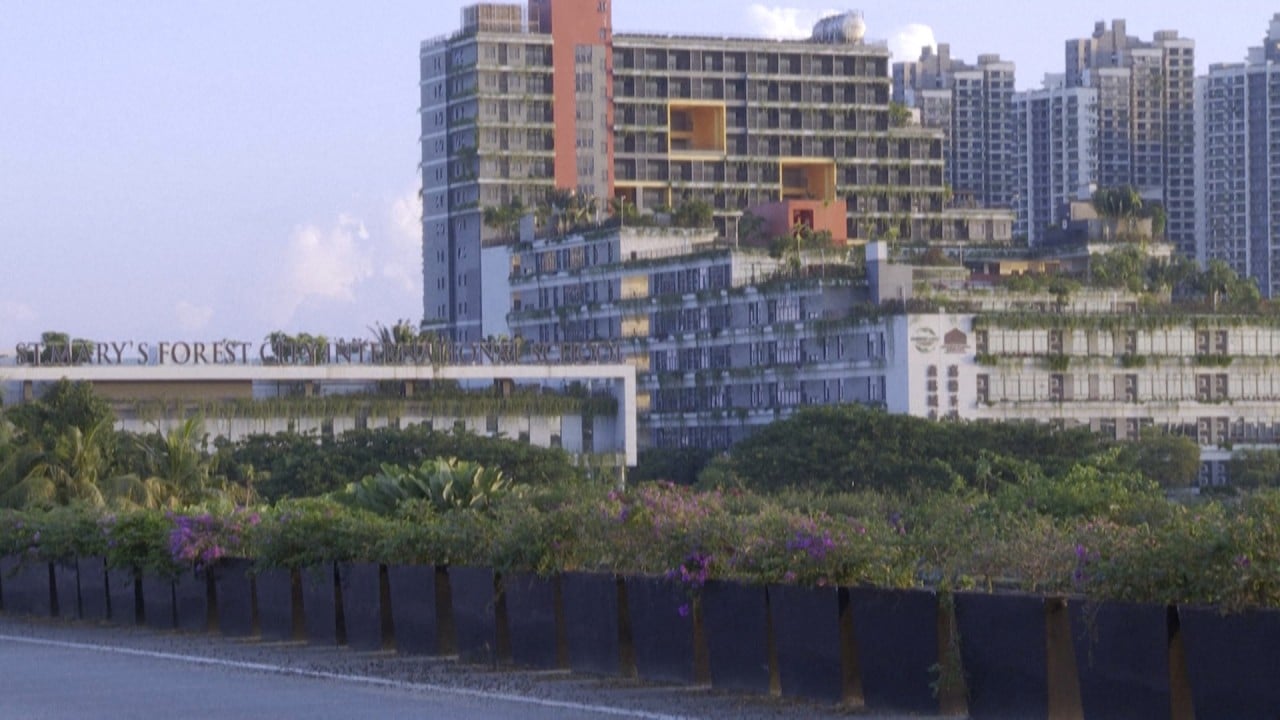
Revival of Malaysia’s Forest City, Melaka Gateway would give PM Anwar a boost
- After years of neglect by past administrations, the Chinese-backed project is again in the spotlight as PM Anwar Ibrahim eyes investors from Singapore
- Renewed interest in Forest City comes amid talk of reviving another Belt and Road Initiative project in Malaysia, the US$10 billion Melaka Gateway
It was arguably the strongest endorsement by the government for the US$100 billion Chinese-built project after years of neglect by past administrations that viewed it as a politically unsafe bet amid rising ethno-nationalism and increasingly unaffordable housing for Malaysians.

Just months into his second tenure as prime minister in 2018, Mahathir imposed a ban on foreign ownership in the project, though he later walked back on it and said that the government would not issue entry visas based solely on ownership of properties in Forest City.
The motivations may have been almost entirely political, but the fallout from the attacks on the project has been palpable.
Malaysia lures Singapore’s expats as Chinese-built Forest City homes ‘sit empty’
The resistance happened almost immediately. Mahathir – who at that point had quit Umno in protest of alleged corruption under Najib’s watch – stirred local sentiments against what he described at campaign stops as a project built solely for Chinese nationals on Malaysian soil.
The project was dealt a major blow in 2017 when the Chinese government imposed capital controls, disrupting cash flow for Chinese developers with overseas projects and also making it prohibitive for Chinese clients to finalise their purchases in Forest City.
A total of 28,000 condominium units have been completed on the first island under phase one of Forest City. Just 9,000 people are living in the area, a fraction of the population target of 700,000 for the entire project.
Anwar’s plan is to establish Forest City as an extended base for these firms to expand or shift some of their operations, offering lower operational and living costs.

The developers of the US$10 billion project, which like the master developer of Forest City has the backing of the Sultan of Johor, officially declared on Monday that the Melaka Gateway is back on track. The 246.45-hectare maritime initiative was meant to include port facilities, economic parks and tourist attractions on three artificially constructed islands.
Success in both projects would be a boon for Anwar, who has struggled to garner broad public support since taking the premiership in November, with the potential economic spillovers for local businesses and employment.
The big question is whether his administration can present cogent policies to boost these projects and see through their implementation, or end up wavering over criticism and end up back where they started.
Joseph Sipalan is a correspondent at the Post’s Asia desk.


